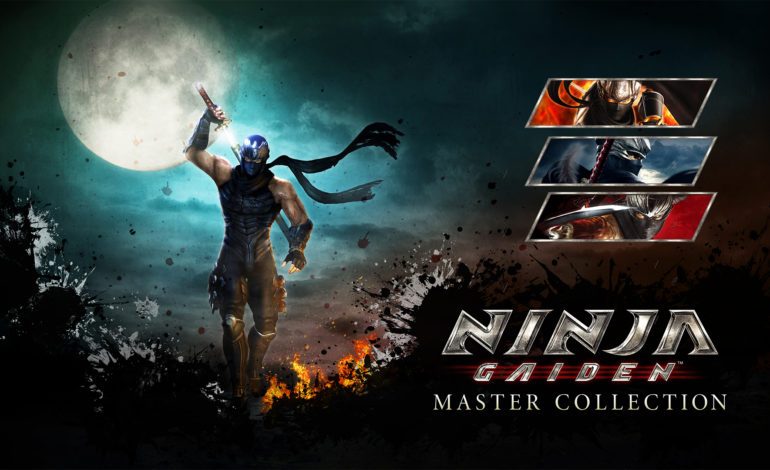

Often hailed as the precursor for challenging action games, Ninja Gaiden has gone down in gaming history as a classic. From sidescrollers to hack’n slash, this franchise has been all around in terms of content. The Ninja Gaiden Master Collection aims to revisit the Sigma series by giving each game a fresh resolution upscale and the ability to be played on PC. While the fresh looks are good and all, the games are straight up ports, and show their age when it comes to gameplay. What the Ninja Gaiden Master Collection offers is a decent way to re-experience the series, but more so a playable timeline of what the series grew into.
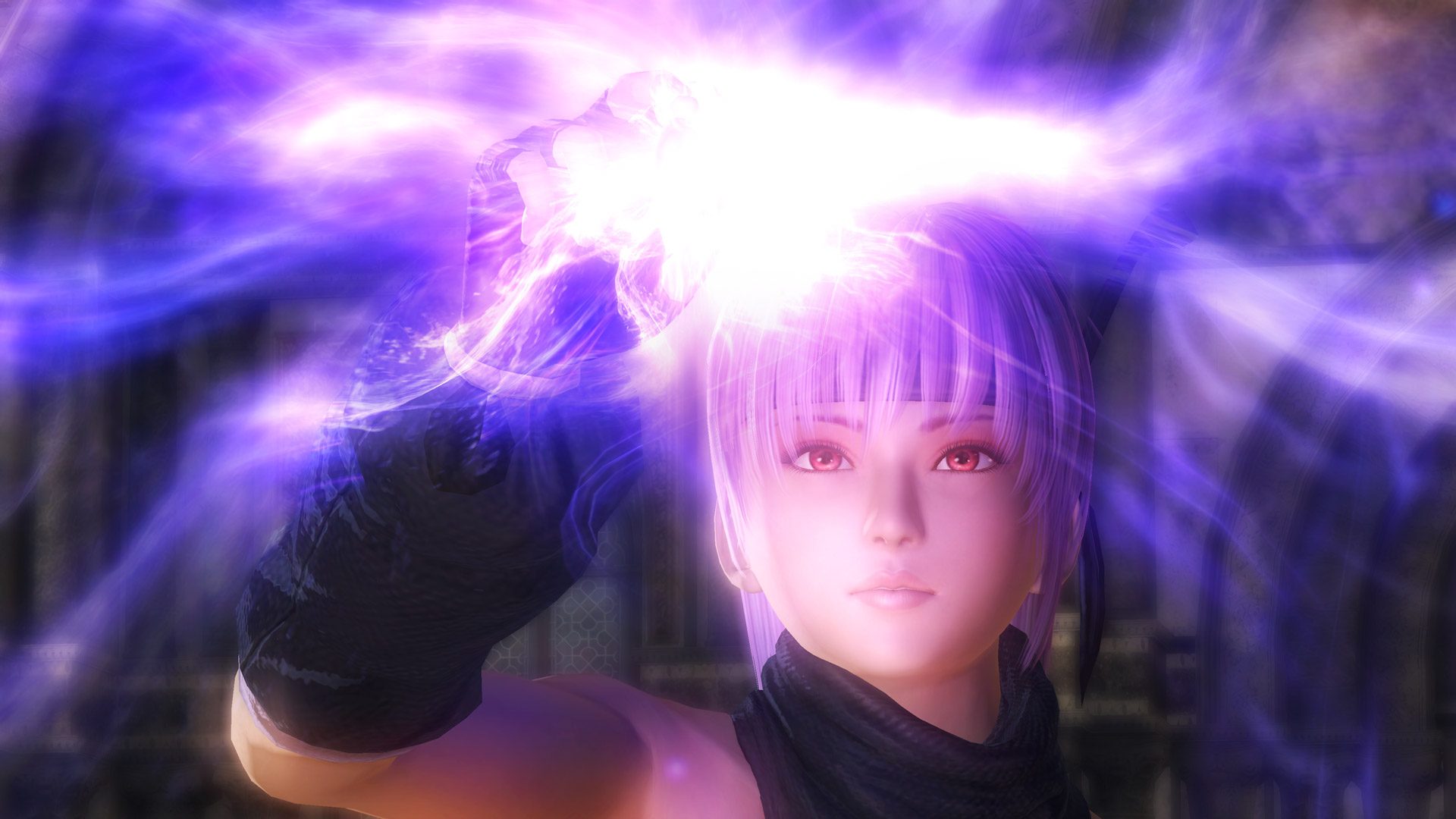

Jumping straight into it, Ninja Gaiden Sigma was the first of the three games offered, and truthfully really feels like the first in the franchise. This game shows its age, and not in a great way. The resolution upscale helps, but mostly the mechanics and unwieldy camera throw this game back a few generations. This is the first introduction to the staple combat you’ll see in this series, and all things considered, it holds up quite well. When the camera isn’t trying to run away from you, the combat feels fluid and impactful. The lack of a lock-on feature makes target focus difficult, but once you get used to it, adds an extra layer of mastery. From the gameplay systems to the UI, everything in this game feels very dated and not in the best way. The environmental hints of where to go next or find secret collectables are really cool, and many are well placed. The hidden potion in the first boss fight was a really nice touch, and that’s not something you see a lot of in games today. This game really made you feel like a ninja from the jump, and thematically had a decent start to ease you into what was to come.
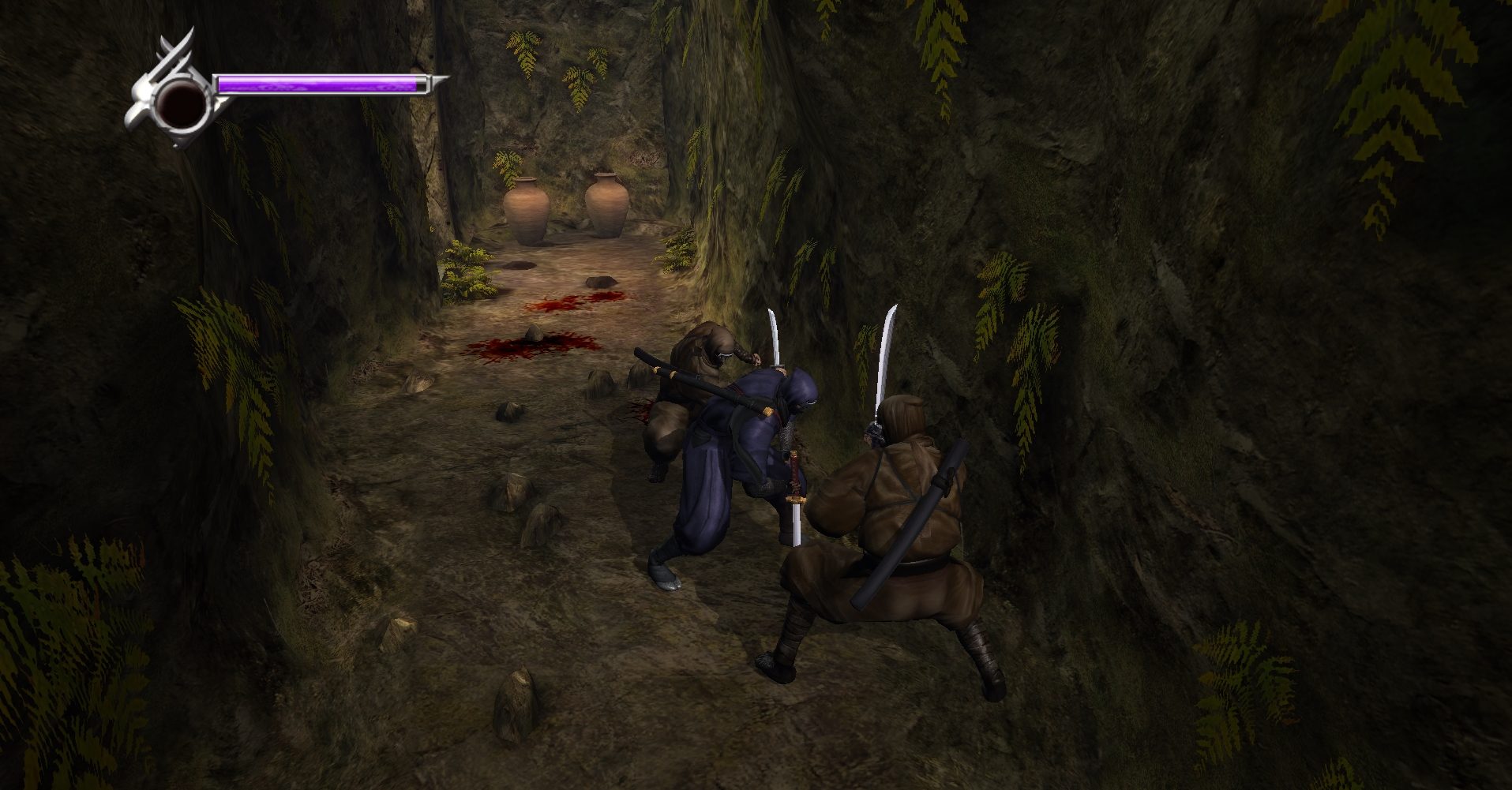

Ninja Gaiden Sigma 2 is what I would call the outlier of the three games, but instantly felt like a step up from the first title. Absent from this game were the staple blood and gore, but it rapidly introduces you to added features and new gameplay systems very early on. This rushes players into the combat they bought the game for, and streamlines you to the best parts of the Ninja Gaiden series. While not perfect, the camera is a huge step up from the first game, and the instant upgrade in combos and weapons makes the combat feel much more varied. The difficulty spike with downed enemies is nice and challenging, and being able to buy items at merchant statues helps keep you prepared for your next trial. The boss fights felt janky at times, especially the two with the giant statue. While the more active phases of combat flow elegantly from combo to combo, the passive phases during boss fights that involve moving out of telegraphs are hindered by a consistently sluggish run speed, and it makes some deaths feel unfair. The early introduction of a second weapon was great too, and instantly added variety to combat that already felt better.
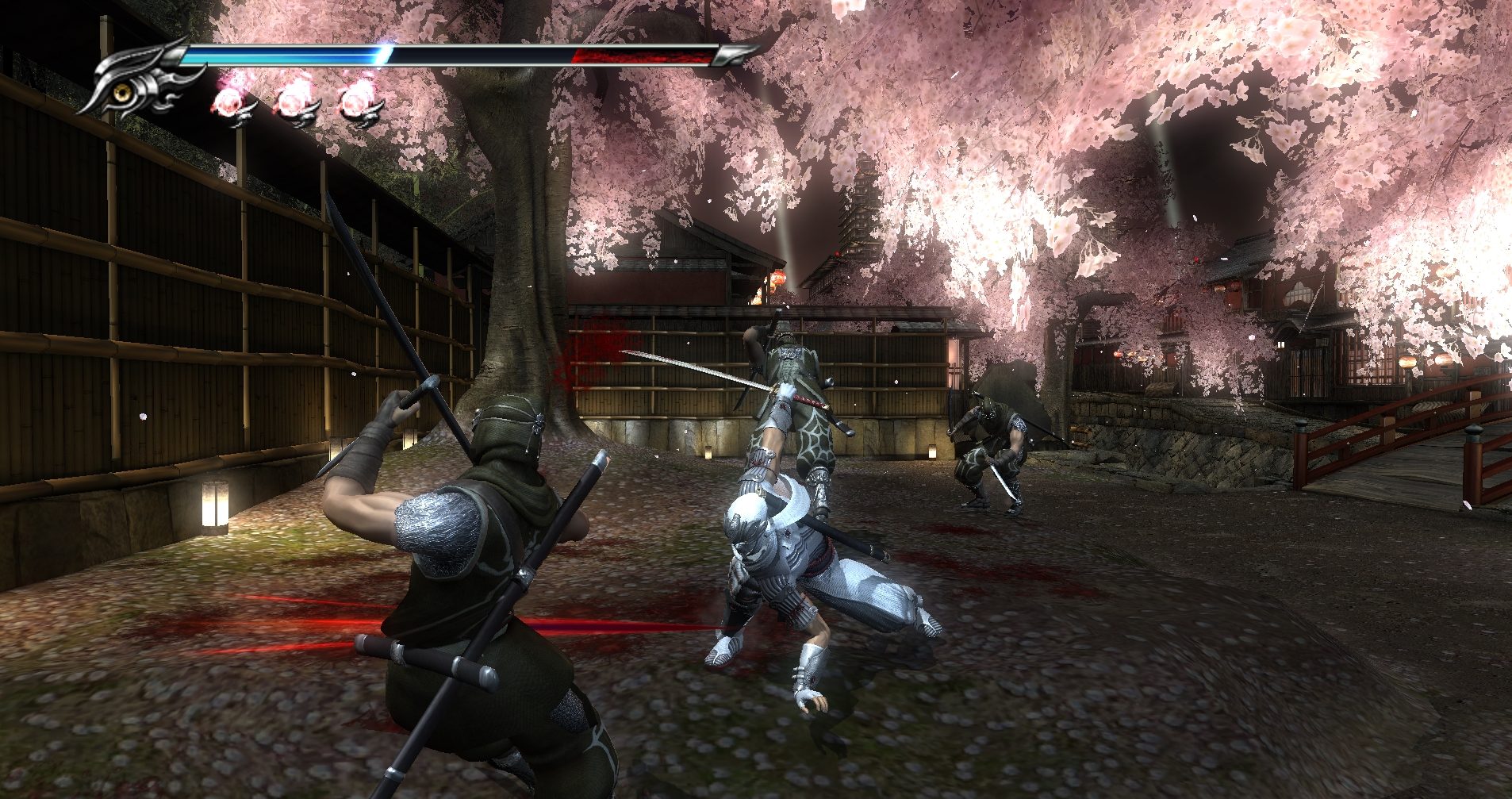

Ninja Gaiden Sigma 3 was a bit of a return to form for the series, returning to the extreme blood and gore shown in the first game. Thematically, this was by far the furthest removed. Instead of fighting ninjas, you’re thrust into combat against soldiers with guns and swords, and stealth is introduced to help you avoid snipers when under fire. While the change was jarring, this obviously had the best combat of the three. The combat felt more fluid and the animations were much smoother. Dodging felt the most active of the three titles, and it finally felt like Ninja Gaiden figured out how to make a dodge mechanic feel impactful. The action and movements, especially the stealth and afterimages made it seem more in-line with fantasy ninja imagery. Ninpo in the second title was almost there, but Sigma 3 felt both the most far removed and the most outlandish. The streamlining was present in Sigma 3 as well, but with how fluid the combat was this was just the most enjoyable to play.
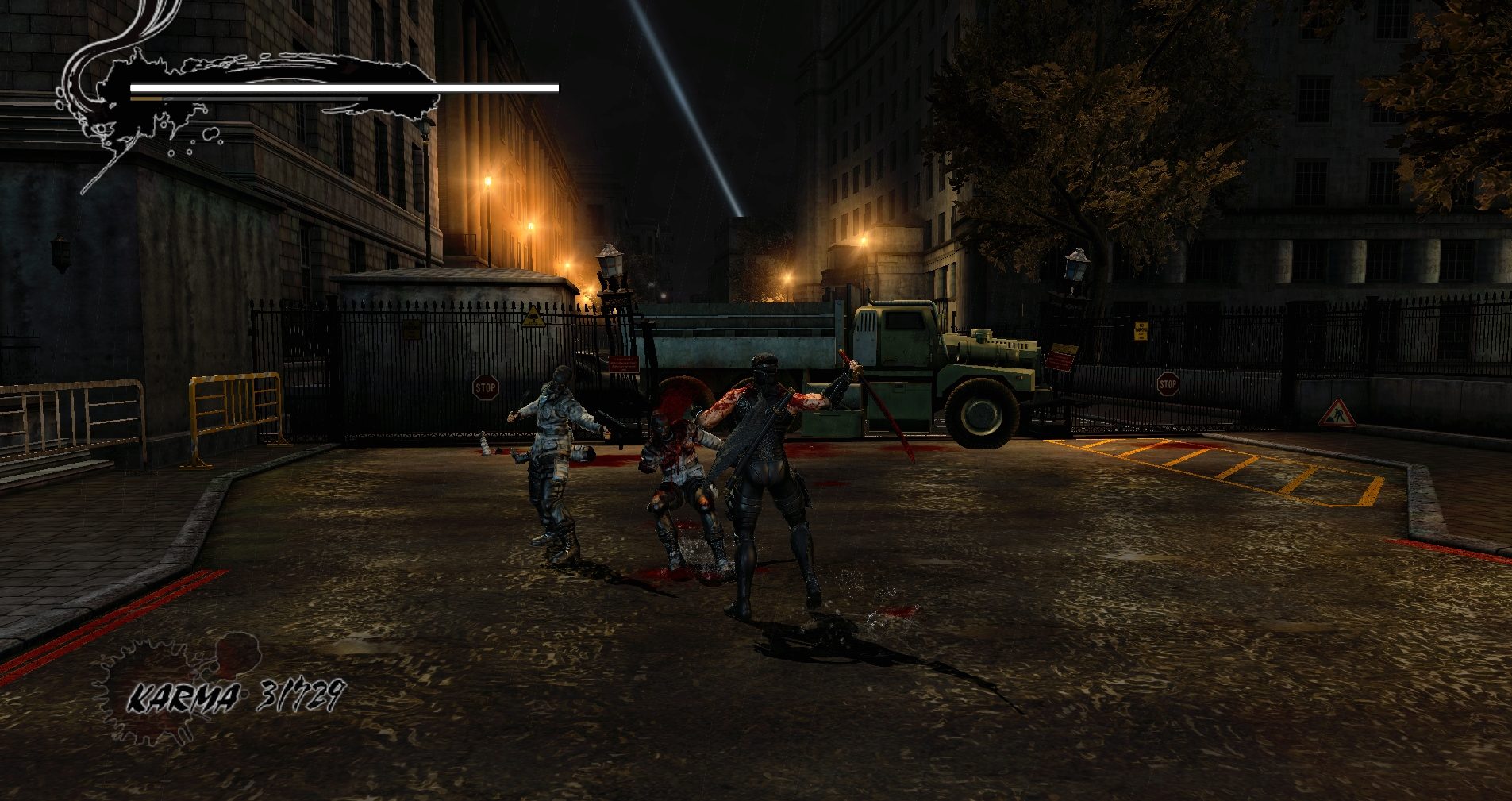

The Ninja Gaiden Master Collection feels best described as an active timeline or a gift for longtime fans of the franchise. The upscaling makes the games look better, but a lack of feature renovation keeps the games feeling like they’re stuck in the past. I can see this being a solid purchase if content is the goal, as this is a good value for three decent action games. Being able to replay them is value in itself for some, but for players looking for faster paced action combat there are other options. Dipping your toes into the past every now and then isn’t bad, but frustration with outdated systems is bound to pile up after playing more recent titles.
Score: 7 out of 10
Reviewed on Windows PC (Steam)
Play games, take surveys and take advantage of special offers to help support mxdwn.
Every dollar helps keep the content you love coming every single day.
